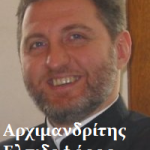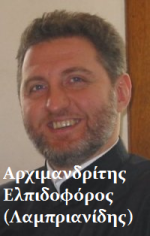Deprecated: str_replace(): Passing null to parameter #3 ($subject) of type array|string is deprecated in
/home/aoiusa/public_html/wp-content/themes/genesis/lib/functions/image.php on line
116
class="post-2178 post type-post status-publish format-standard hentry category-blog-archive tag-autocephalous-churches tag-canon-28 tag-canon-law tag-ecumenical-councils tag-ecumenical-patriarch-athenagoras tag-ecumenical-patriarch-bartholomew-i tag-ecumenical-patriarchate tag-great-and-holy-council tag-history tag-holy-cross-greek-orthodox-school-of-theology tag-news tag-orthodox-church tag-orthodox-unity tag-patriarch-photios tag-primacy tag-russian-orthodox tag-synaxis-of-orthodox-primates tag-theology tag-tome-of-autocephaly entry">
Deprecated: trim(): Passing null to parameter #1 ($string) of type string is deprecated in
/home/aoiusa/public_html/wp-content/plugins/sexybookmarks/public.php on line
388
Deprecated: trim(): Passing null to parameter #1 ($string) of type string is deprecated in
/home/aoiusa/public_html/wp-content/plugins/sexybookmarks/public.php on line
394
Deprecated: trim(): Passing null to parameter #1 ($string) of type string is deprecated in
/home/aoiusa/public_html/wp-content/plugins/sexybookmarks/public.php on line
400
The Holy Cross Greek Orthodox School of Theology in Brookline, Mass., released a “Faculty Statement on the Ecumenical Patriarchate” on April 30 and posted it on the school’s Web site on May 8. HT: Andrew. Text follows:
The Leadership of the Ecumenical Patriarchate and the Significance of Canon 28 of Chalcedon
The Ecumenical Patriarchate of Constantinople is the preeminent Church in the communion of the fourteen Autocephalous Orthodox Churches. Reflecting the witness of St. Andrew, the First Called Apostle, the enduring mission of the Ecumenical Patriarchate of Constantinople is to proclaim the salutary Gospel of Jesus Christ in accordance with the Apostolic and Orthodox Faith.
The Ecumenical Patriarchate has a particular responsibility to strengthen the unity of the Orthodox Churches and to coordinate their common witness. At the same time, the Ecumenical Patriarchate has a specific responsibility to care for the faithful in lands beyond the borders of the other Autocephalous Churches. This is a ministry of service to the entire Church which the Ecumenical Patriarchate undertakes in accordance with the canons and often under difficult circumstances.
The Faculty of Holy Cross Greek Orthodox School of Theology profoundly regrets that statements recently have been made which misinterpret the canonical prerogatives and distort historical facts related to the distinctive ministry of the Ecumenical Patriarchate. Indeed, some injudicious remarks have insulted the person of Ecumenical Patriarch Bartholomew and have attempted to diminish the significance of his ministry.
These statements, made by bishops, priests and laity, have been widely distributed. Regretfully, they have done little to advance the cause of Orthodox unity and the witness of the Church today. Indeed, some observations have misrepresented the traditional basis of Orthodox ecclesiology. They contradict the admonition of St. Paul that “all things should be done decently and in order” (1 Cor. 14:40).
Principles of Ecclesiastical Organization
The Church, chiefly through the Ecumenical Councils, has established significant principles of ecclesiastical organization. These principles are expressed in the canons of the Councils and in subsequent historical practices which have been sanctioned by the Church. These principles support the proclamation of the Gospel and strengthen the good order of the Church.
The Ecumenical Patriarch has been accorded specific prerogatives of witness and service from the time of the fourth century. This was a period when the Church was able explicitly to provide for canonical structures following the period of great persecution of the first three centuries. These prerogatives form the basis for his ministry to the entire Orthodox Church. These prerogatives distinguish the responsibilities of the Ecumenical Patriarch from other bishops of the Orthodox Church. They clearly grant to the Ecumenical Patriarch of Constantinople a primacy among the bishops of the Church. This primacy of service brings with it significant authority and responsibilities. Continue reading →
Deprecated: str_replace(): Passing null to parameter #3 ($subject) of type array|string is deprecated in
/home/aoiusa/public_html/wp-content/themes/genesis/lib/functions/image.php on line
116
class="post-1615 post type-post status-publish format-standard hentry category-blog-archive tag-american-orthodox tag-autocephalous tag-byzantine tag-canon-law tag-church-and-state tag-ecumenical-patriarchate tag-fr-alexander-schmemann tag-hellenism-and-orthodoxy tag-history tag-orthodox-christian-unity tag-orthodox-church tag-orthodox-ecclesiology tag-papal-primacy tag-symphonia tag-theology entry">
Deprecated: trim(): Passing null to parameter #1 ($string) of type string is deprecated in
/home/aoiusa/public_html/wp-content/plugins/sexybookmarks/public.php on line
388
Deprecated: trim(): Passing null to parameter #1 ($string) of type string is deprecated in
/home/aoiusa/public_html/wp-content/plugins/sexybookmarks/public.php on line
394
Deprecated: trim(): Passing null to parameter #1 ($string) of type string is deprecated in
/home/aoiusa/public_html/wp-content/plugins/sexybookmarks/public.php on line
400

Many of the current jurisdictional controversies within the Orthodox Church involving the Ecumenical Patriarch, relations between Constantinople and Moscow, the status of the “autocephalies” — even the future of the American Orthodox Church — hinge on the question of primacy. While Orthodox Christians have rejected the Roman model of primacy as “supreme power” over the Bishop and local Church, the question of primacy within the Orthodox Church is a complete muddle. In “The Idea of Primacy in Orthodox Ecclesiology,” an essay written in 1960 and now available on the AOI main site, Fr. Alexander Schmemann examines various aspects of the primacy question, an issue he describes as “on the agenda for our time.” As he reminds us, the ecclesiological interpretation of primacy — regional, autocephalous, and “universal” — is “virtually absent” from from Orthodox theology. “We badly need a clarification of the nature and functions of all these primacies and, first of all, of the very concept of primacy,” Fr. Schmemann writes. “For both in theory and in practice there is a great deal of confusion concerning the definition of the ‘supreme power’ in the church, of its scope and the modes of its expression.”
Excerpts:
It would not be difficult to prove that the canonical and jurisdictional troubles and divisions, of which we have had too many in the last decades, have their roots in some way or other in this question of primacy, or, to be more exact, in the absence of a clearly defined doctrine of the nature and functions of primacy. And the same unsolved problem constitutes a major handicap for the unity and, therefore, the progress of Orthodoxy in countries like America where, paradoxically enough, the loyalty to a certain concept of “canonicity” leads to the most uncanonical situation that can be imagined: the coexistence on the same territory of a number of parallel jurisdictions, and dioceses…
[ … ]
In the early Church the canonical tradition was an integral part of ecclesiology — of the living experience of the Church. But little by little it became an autonomous sphere in which the visible ecclesiastical structures, the functions of power and authority, and the relations between Churches, ceased to be explained in terms of the Church-Body of Christ. Loosing its ties with ecclesiology, the canonical tradition became “canon law.” But in Canon Law there was no room for the notion of the Body of Christ because this notion has nothing to do with “law.” Continue reading →
Deprecated: trim(): Passing null to parameter #1 ($string) of type string is deprecated in
/home/aoiusa/public_html/wp-content/plugins/sexybookmarks/public.php on line
388
Deprecated: trim(): Passing null to parameter #1 ($string) of type string is deprecated in
/home/aoiusa/public_html/wp-content/plugins/sexybookmarks/public.php on line
394
Deprecated: trim(): Passing null to parameter #1 ($string) of type string is deprecated in
/home/aoiusa/public_html/wp-content/plugins/sexybookmarks/public.php on line
400
The battle is joined.
Highlight:
With regards to the United States, the submission to the First Throne of the Church, that is, to the Ecumenical Patriarchate is not only fitting with the American society and mentality but also it opens up the horizons of possibilities for this much-promising region, which is capable of becoming an example of Pan-Orthodox unity and witness.
The Mother Church of Constantinople safeguards for the Orthodox Church in America those provisions that are needed for further progress and maturity in Christ.
Full text follows:
Challenges of Orthodoxy in America And the Role of the Ecumenical Patriarchate
By Very Reverend Archimandrite
Dr. Elpidophoros Lambriniadis
Chief Secretary of the Holy and Sacred Synod
(Chapel of the Holy Cross, March 16, 2009)
Reverend Protopresbyter Nicholas Triantafyllou, President,
Reverend Protopresbyter Thomas Fitzgerald, Dean of the School of Theology,
Reverend and Esteemed Members of the Faculty and staff,
Dear Students,
It is an exceptional honor and a great joy for me to be here today, among you, with the blessing and permission of His All Holiness the Ecumenical Patriarch and the consent of His Eminence the Archbishop of America, in order to share with you some thoughts regarding the present condition of Orthodoxy in America and our Ecumenical Patriarchate’s position towards it.
You have, my brothers and sisters, the privilege to be citizens of a country which determines to a great extent the fate of many people on our planet; a country where pioneering technologies as well as ideas and philosophies have been discovered and disseminated. The cultural peculiarities and characteristics of the United States find also a reflection in, as it is only natural, and exercise an influence on the religious communities of this country. It is far from accidental that none of the “traditional” religions (coming either from Europe or elsewhere), remained the same once they were replanted on American soil.
The same change can be of course observed in the case of Orthodoxy, whose appearance and development in America was influenced by certain indeterminable factors.
The first and main challenge that American Orthodoxy faces is that it has been developed in a region which, from an administrative and technical point, is that of diaspora. By the term “diaspora” we indicate that region whose ecclesiastical jurisdiction is been unfortunately claimed by a variety of “Mother” Churches, which wish to maintain their pastoral care over their respective flocks, comprised by the people who, over the years, immigrated to the superpower called USA. Continue reading →
Fatal error: Uncaught Error: Call to undefined function nuthemes_content_nav() in /home/aoiusa/public_html/wp-content/themes/prose/archive.php:58
Stack trace:
#0 /home/aoiusa/public_html/wp-includes/template-loader.php(106): include()
#1 /home/aoiusa/public_html/wp-blog-header.php(19): require_once('/home/aoiusa/pu...')
#2 /home/aoiusa/public_html/index.php(17): require('/home/aoiusa/pu...')
#3 {main}
thrown in
/home/aoiusa/public_html/wp-content/themes/prose/archive.php on line
58


